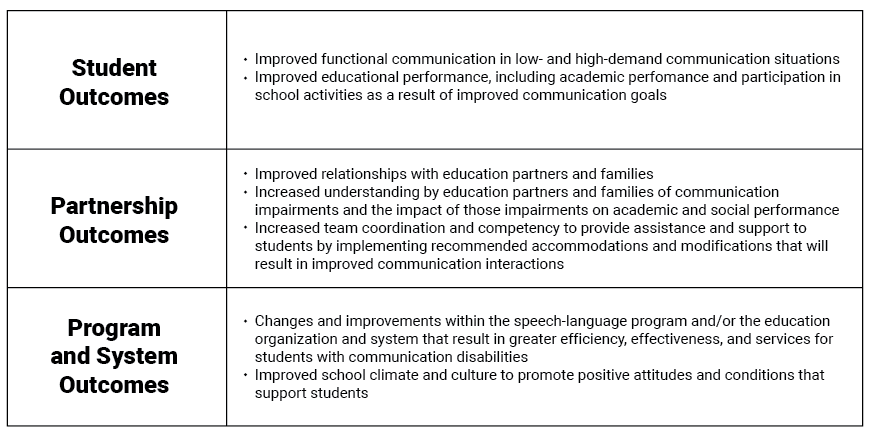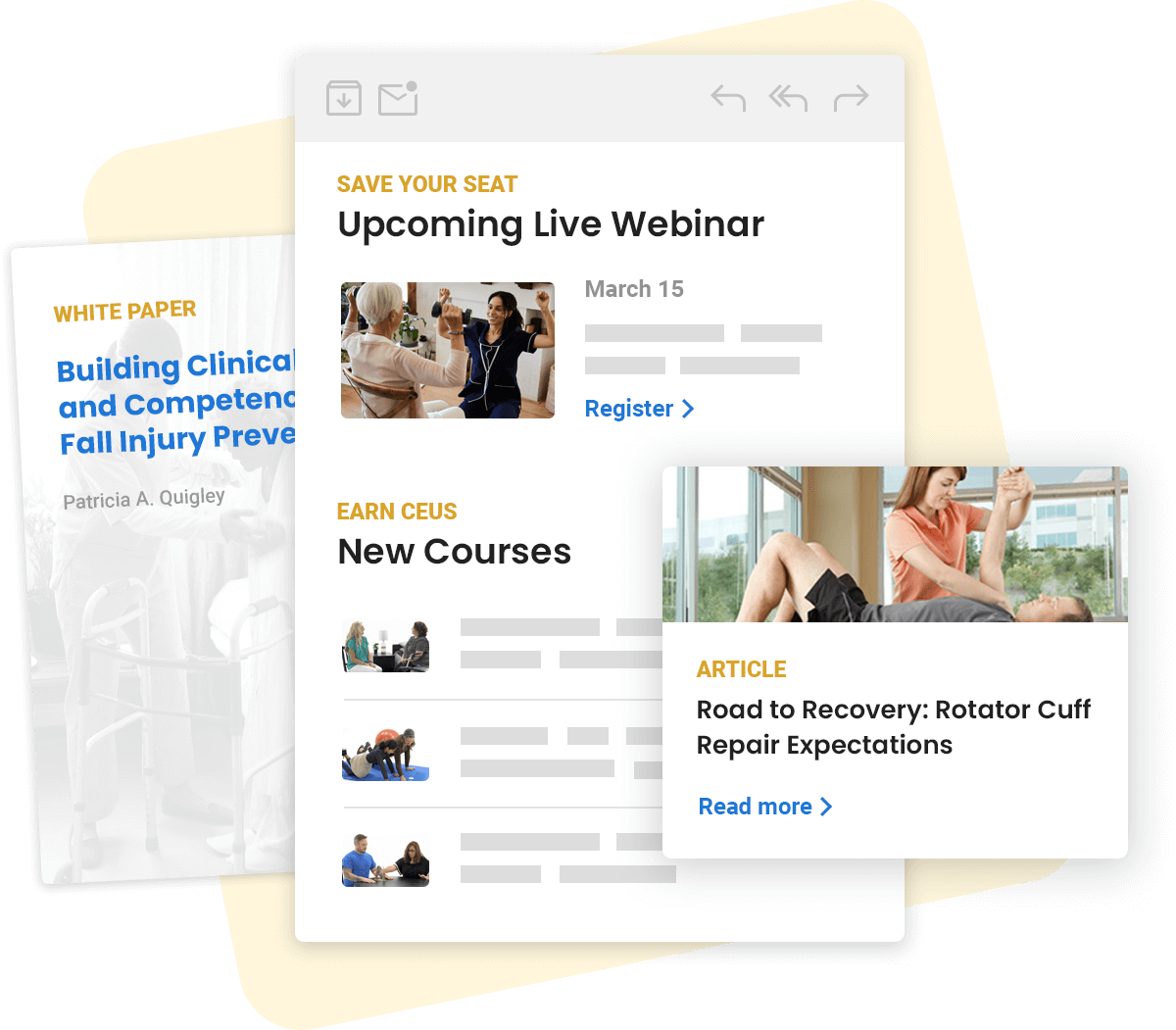Outcomes Matter! The School SLP Services Outcomes Framework

Practitioners who work with children with disabilities want be sure personally that they are making a difference in their students’ performance and lives. These providers (which include SLPs, OTs, PTs, psychologists, BCBAs, and early intervention specialists) are also required to demonstrate their value and contributions by providing specific, measurable outcomes.
The call for results-driven instructional and intervention practices, systematic methods of measuring educational and intervention outcomes, and accountability has never been greater. Administrators, educators, families, and the students/clients themselves all seek proof of positive results.
Demonstrating Outcomes
Outcomes in the school setting are usually expressed as knowledge, skills, or attitudes.
For example, a school SLP’s outcomes might demonstrate how a student with communication impairments functions when confronted with curricular demands and expectations as well as the complex classroom environment. One sign of treatment effectiveness would be functional improvement in the student’s communication and learning performance.
Unfortunately, the practitioner’s ability to to determine outcomes may be complicated by inconsistent practices among service providers, including:
- Methods for determining students’ eligibility for services
- Defining the impact of disabilities on educational performance
- Matching students to appropriate service delivery dosage and treatment approaches
- Planning and scheduling caseloads
- Managing workloads
- Choosing intervention procedures
Challenges such as these have contributed to increased demands for greater accountability, efficiency, and cost effectiveness. We as practitioners value accountability and evidence to prove our positive results, and so do our multiple partners and constituents. If the desired outcomes are not achieved, we are expected to make improvements.
Why Outcome Data Matters
Unfortunately, many school-based service providers aren’t sure how to identify, describe, and document treatment outcomes. They struggle with ways to convey the contributions they make to their students’ learning potential and success.
Collecting outcomes data in the school setting enables practitioners to engage in systematic, consistent, and thoughtful decision making, planning, and service delivery for students with disabilities. This data is then used for:
- IEP decision making and planning
- Documenting progress toward goals
- Supporting team decisions to increase or decrease services or modify intervention approaches
- Developing educational supports
Outcomes data can also be used to monitor program effectiveness as well as substantiate the need for programmatic, personnel, organizational, and systemic changes that will yield greater efficiency and effectiveness.
The School SLP Services Outcomes Framework
Recognizing the importance of accountability as well as our colleagues’ challenges and struggles, I developed a practical three-pronged framework for determining and reporting outcomes—the School Speech-Language Services Outcomes Framework.
School-based SLPs focus their efforts on obtaining positive outcomes in three key areas of service delivery—student outcomes, partnership outcomes, and program and system outcomes. These three important SLP functions provide a relevant, interrelated framework for documenting outcomes and improving services.

Several practical outcomes measurement tools can be used to determine outcomes in these three areas, including satisfaction surveys, feedback forms, performance improvement plans, team assessments, and progress monitoring. The framework can easily be adapted and applied to practice in other disciplines, including our OT, PT, psychology, social work, special education, and medical teammates.
You can learn more about the importance of identifying and proving outcomes and learn to apply these practical tools in my MedBridge course “Outcomes Matter in School SLP Programs.”










